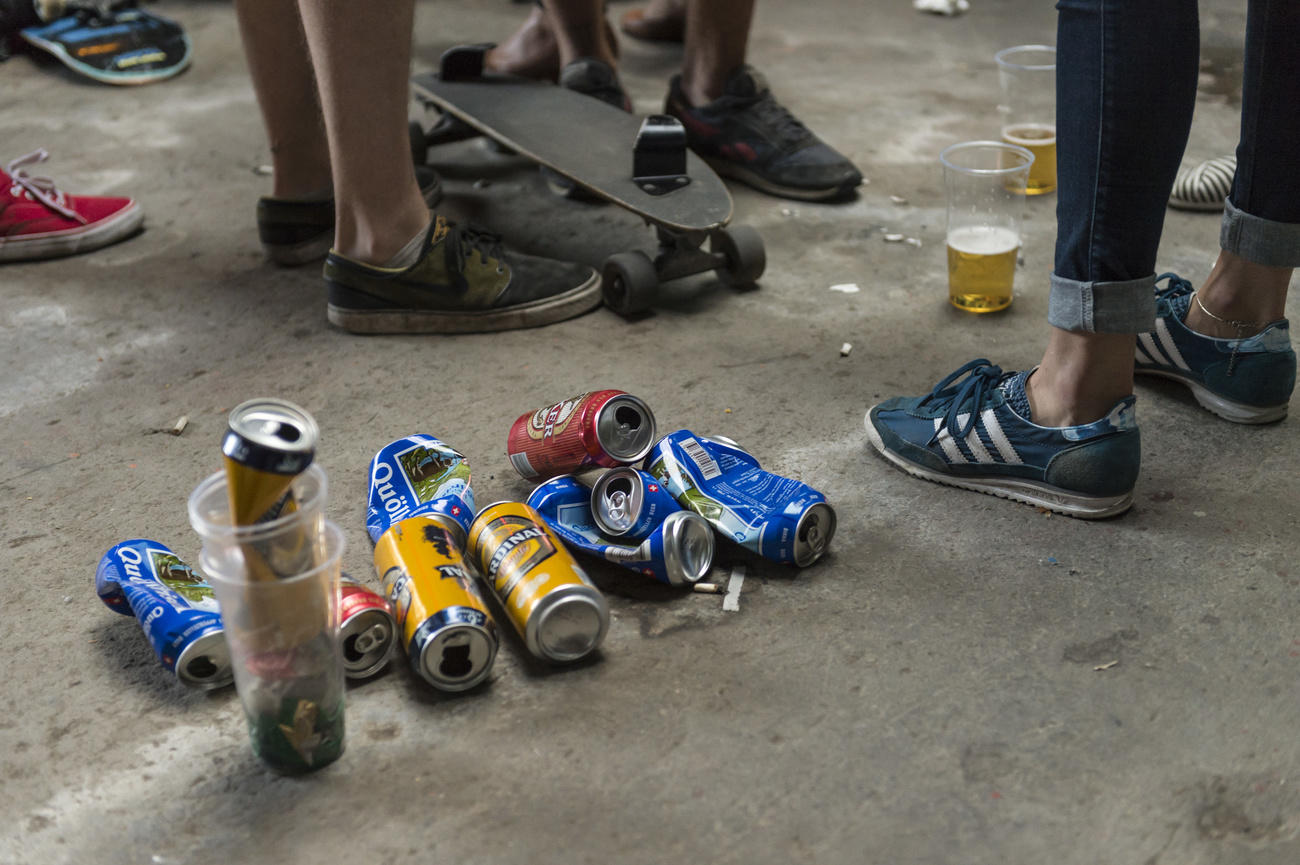
Anti-binge-drinking app helps students cut down on alcohol, scientists say

A smartphone app had a “significant” impact on moderating students’ drinking behaviour, a study in Switzerland has shown.
Researchers from the Lausanne University Hospital and the University of Lausanne, working with colleagues in the UK, Canada and US, found that a year after downloading the drinking app Smaart, students were consuming 10% less alcohol a week and having 11% fewer days a month on which they binged. Binging was classified as at least five drinks at a time for men and women.
In a randomised controlled trial, 738 university students in Switzerland with a history of “unhealthy alcohol use” used the app – designed by the Lausanne researchers in collaboration with the students – on average 21.2 times each over a 12-month period. They recorded their drinking habits on the app, which has six modules including personalised advice, alcohol consumption monitoring and goals for safe drinking.
+ Binge-drinking and psychological stress up among young Swiss
“Compared with the group who were not given the intervention, providing access to the app for 12 months was effective at reducing the average drinking volume of university students who had self-reported unhealthy alcohol use at baseline,” the study authors wrote in the British Medical Journal (BMJExternal link).
When they assessed participants a year after the trial began, the academics found “significantly lower drinking volumes in the intervention group than in the control group” in terms of the number of alcoholic drinks they had every week.
+ Swiss above OECD average for alcohol intake
The app also had “a significant main effect” on reducing students’ heavy drinking days. It sought to help users drink less by giving them personalised feedback, for example by telling them how many other Swiss people of the same age were drinking less than them and how many calories were in the drinks they consumed and how many hamburgers that equated to.
The findings, publishedExternal link on Wednesday, will be welcomed by health officials and behavioural scientists. Alcohol abuse causes 3 million deaths a year, according to the World Health Organization (WHO). Excess alcohol intake is known to pose the biggest risk to the health of people aged 15 to 49 years old, and students are known to drink more than most other young adults.

More
Binge drinking increases among Swiss youngsters

In compliance with the JTI standards
More: SWI swissinfo.ch certified by the Journalism Trust Initiative



























You can find an overview of ongoing debates with our journalists here . Please join us!
If you want to start a conversation about a topic raised in this article or want to report factual errors, email us at english@swissinfo.ch.